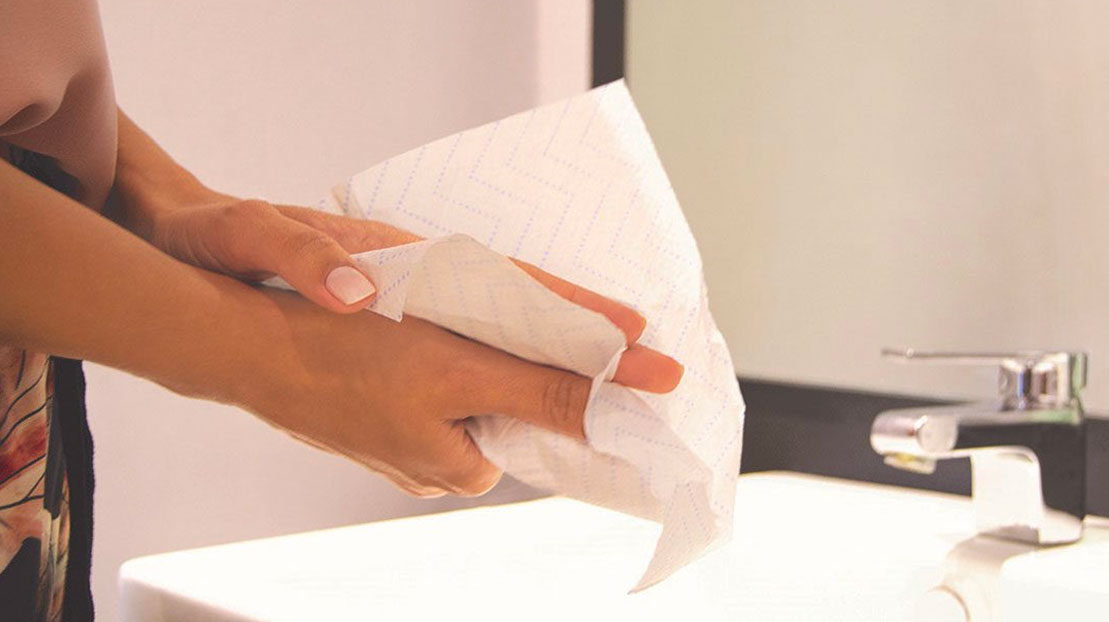
 Share
Share
In response to the pandemic, Germany has enacted an Occupational Health and Safety Rule that now requires disposable paper or textile towels to be available for guest use. It also discourages the use of warm air dryers for hand drying due to concerns around the spread of COVID-19.
Businesses are now facing higher cleanliness standards. While the United States does not yet have a mandate similar to Germany’s, organizations can follow certain best practices to showcase their commitment to the health and safety of their employees and visitors.
To give restroom guests peace of mind, consider the following tips:
-
Provide paper towels to restroom guests. A 2017 Harris Poll from Cintas Corporation found that 69% of Americans prefer using paper towels over air dryers in public restrooms. Given heightened concerns around COVID-19, it’s recommended that businesses provide paper towels even if air dryers are installed.
-
Select high-quality products. Paper towels should be absorbent, soft and strong – a 2019 survey showed that Americans value strength, absorbency and softness as the top three attributes in toilet paper. High-quality paper products not only help reduce total consumption, they also allow restroom guests to dry hands more thoroughly and quickly, elevating and expediting their experience.
-
Opt for automated dispensers. Wet hands spread pathogens more easily than dry hands. To encourage hand-drying and reduce touchpoints, install automated paper towel dispensers in restrooms, as well as automated soap and sanitizer dispensers. This will reduce the spread of germs and support proper hand hygiene.
With 90% of Americans washing their hands more frequently, thoroughly or longer during the pandemic, and 88% claiming they’ll continue handwashing best practices after the pandemic, it’s important for facilities to always have hand hygiene essentials stocked.
The public is now acutely aware that lapses in cleanliness and hygiene exacerbate the spread of infectious diseases. Businesses that take the lead on implementing hygienic changes protect their employees’ health, put guests at ease and differentiate themselves from their competitors.





